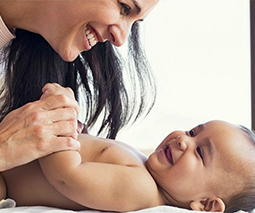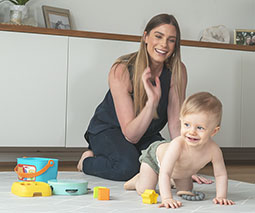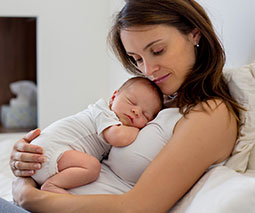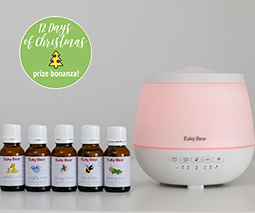Everything you need to know about your baby’s skin
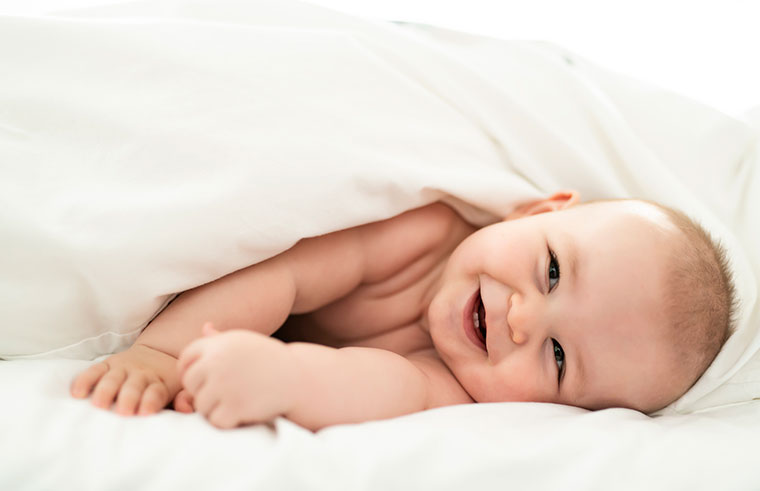
The skin of a newborn baby is just so soft and delicate – but also prone to dryness, flakiness and an assortment of skin rashes. And with so much conflicting advice on proper skincare for your child, it’s hard to know right from wrong. However, Dr Leona Yip, dermatologist and mother, knows a lot about skin and has some practical advice to offer.
The biology of the skin
When it comes to your baby’s skin, Leona first recommends looking at skin barrier.
“That is the skin, seal or skin barrier that sits on top of the skin, made up of natural proteins and lipids or skin oils that would trap moisture within the skin and to keep it nice, moist and less irritated,” says Leona.
“In babies, especially younger ones, the premature babies and the ones who are less than four weeks of age, they don’t have a skin barrier that works really well and what this means is they’re more prone to getting dry skin and irritated skin.”
Leona recommends using moisturisers to help keep skin less itchy and irritated. “It’s also important to think about using an in-bath moisturiser, bath oils, oatmeal or soap-free washes because that is less drying than just using water alone in the bath,” she says.
Listen to Dr Leona Yip on Feed Play Love:
Do babies need a bath every day?
Babies do not need daily baths. “They already have a skin barrier that doesn’t work really well, if you bathe them too frequently, that’s going to strip off more oil from their skin and cause problems and increase their chances of getting eczema,” she says. “We would recommend bathing them not more than once every two to four days.”
Using soap is also not recommended, as it dries the skin and can aggravate eczema. “Always go with a body cleanser, which is not soap-based,” says Leona. “Hot water and heat on their own are both skin irritants, so if you add in a moisturiser like bath oils or oatmeal, that can actually help to improve skin moisturising for them and offset that irritation by the heat and the water.”
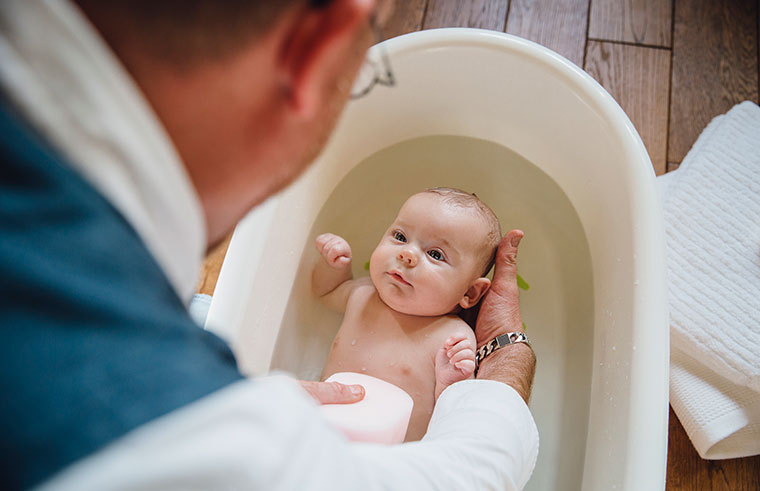
Choosing a moisturiser
For young babies, Leona recommends a greasy paraffin-based moisturiser or one mixed with glycerine.
“Paraffin and glycerine are great because they trap moisture within the skin,” she says. “They also draw water back into the skin.”
However, Leona advises against using essential oils. “There are at least 28 natural extracts and essential oils that have been confirmed to be human allergens,” she says. “As dermatologists, we do see lots of issues with skin sensitisation and allergic contact dermatitis, which are delayed skin hypersensitivity reactions from using essential oils.”
Bath oils, on the other hand, are highly recommended. “A lot of these products in the market are approved by Therapeutic Goods Administration of Australia, and their safety for using babies and children is more established, and they’re usually more hypoallergenic in their formulation,” says Leona.
What is that rash?
Babies are prone to nasty looking skin rashes, such as erythema toxicum neonatorum, a pimply looking rash common in newborns.
“When baby is born, the flora on the skin is a little bit different. And again, this skin bear is not quite well-formed, so that makes them more prone to getting skin rashes,” says Leona. “In the vast majority of these rashes, they do not need intervention because they settle on their own and they usually don’t cause baby as much discomfort as it actually looks.”
Heat rash is another pimply rash that is very common over summer, caused by blockage of sweat glands on top of the skin, sometimes from overheating. According to Leona, most heat rashes go away without treatment. Still, if they don’t, she says to avoid overheating and to use a moisturiser or mild topical steroids prescribed by your GP or dermatologist.
Summer skincare for babies
Currently, the understanding is that sunscreen is safe for children older than six months; however, Leona says no studies prove that it’s harmful under that age.
“When they’re outdoors, and you can’t cover their little hands and their little feet or their faces, it’s absolutely fine to use sunscreen to protect it because the repercussions of sunburn will be a lot worse than using some creams on younger babies,” she says.
Parents should also be wary of using organic sun cream.
“Organic and natural is not necessarily the best for your baby and your child because a lot of these products may contain ingredients with manufacturing claims that they work well. But they may not have the scientific evidence to prove that it’s just as effective as mineral sunscreens with titanium dioxide, zinc oxide, which we know work very well,” she Leona.
Additionally, use a lighter moisturiser on your baby’s skin over summer.
“Thicker moisturisers can cause problems with overheating and heat rashes and aggravation of eczema, for example,” she says. “Stick to lotion-based or light cream-based moisturisers and also thinking about not overheating your child.”
